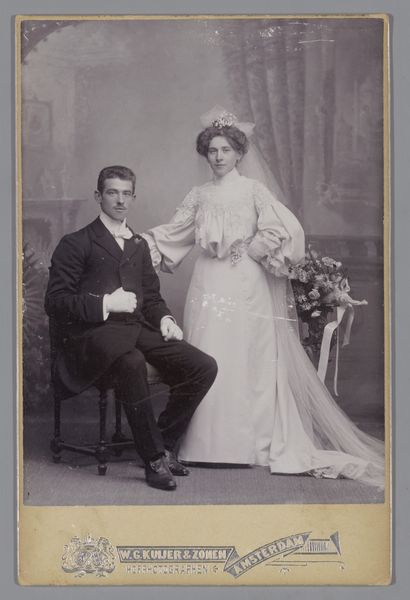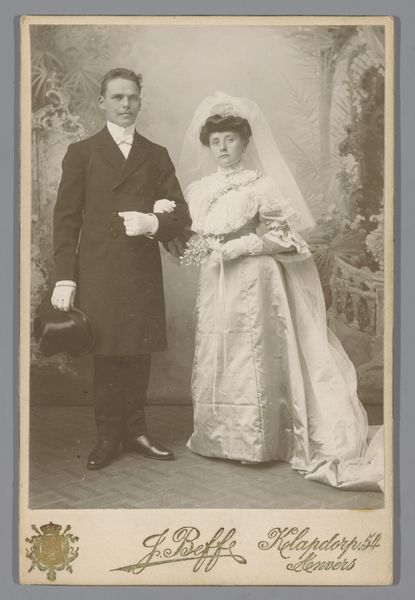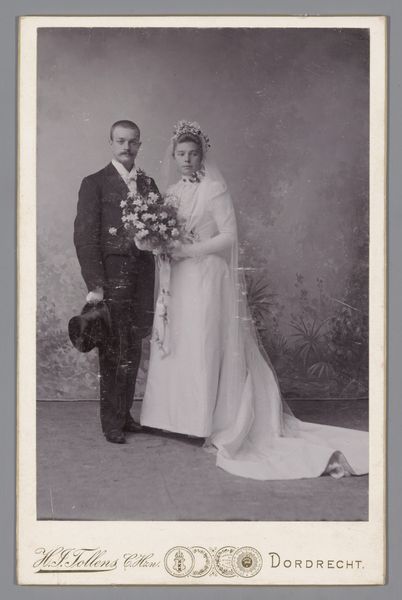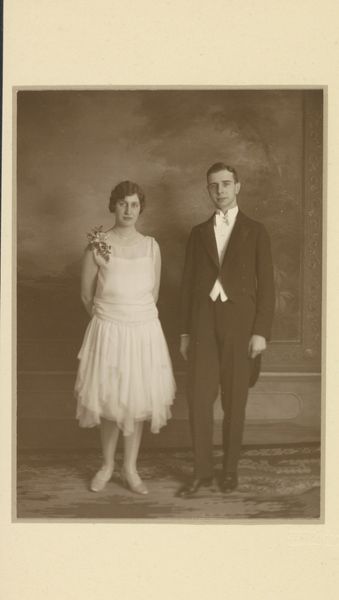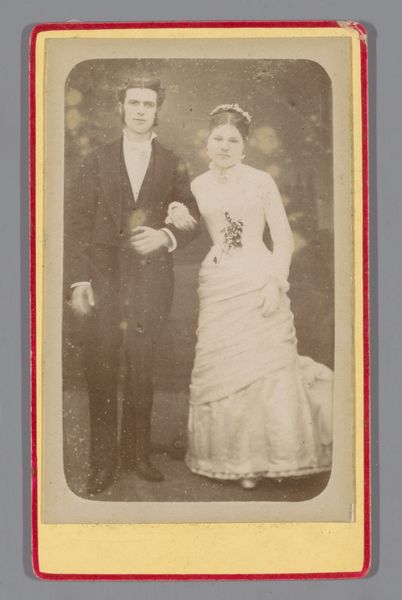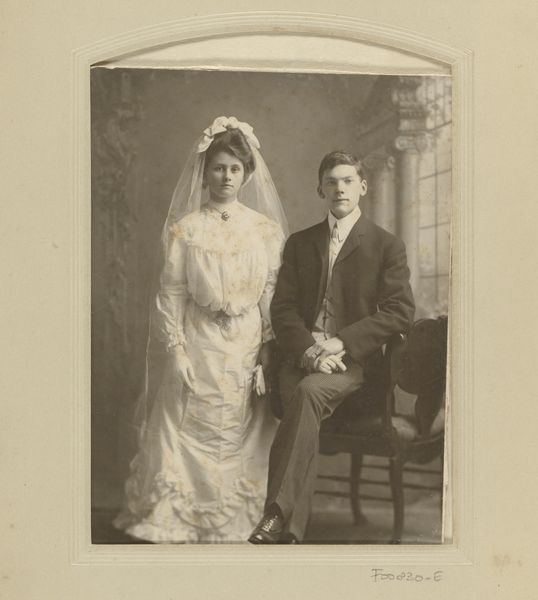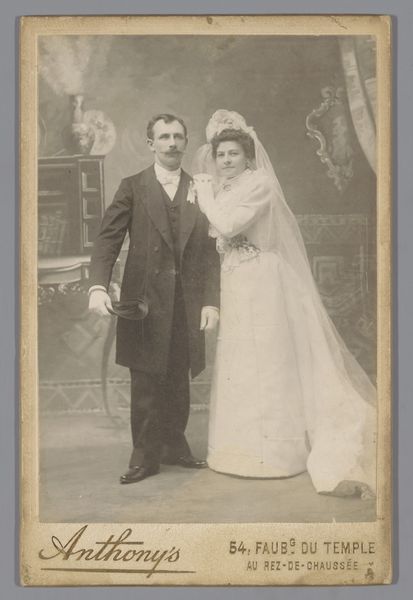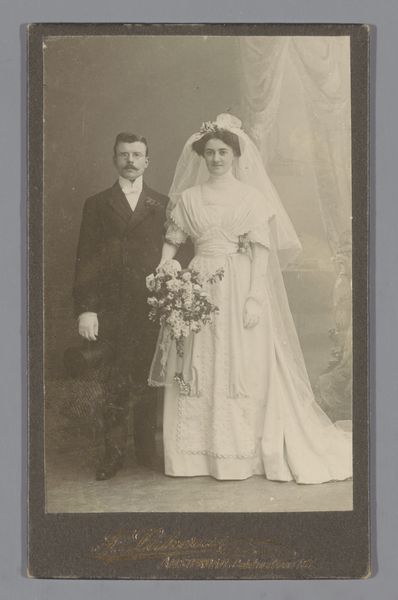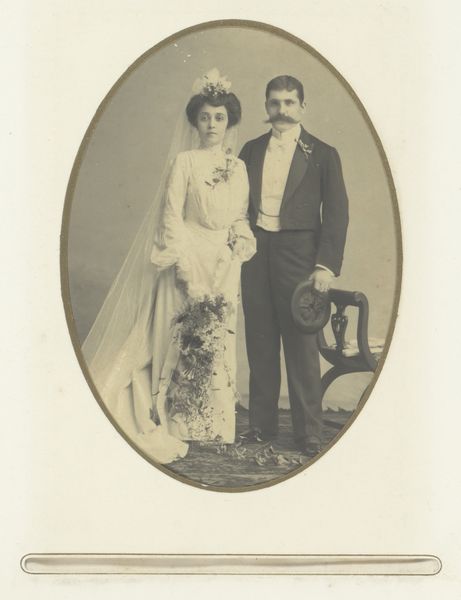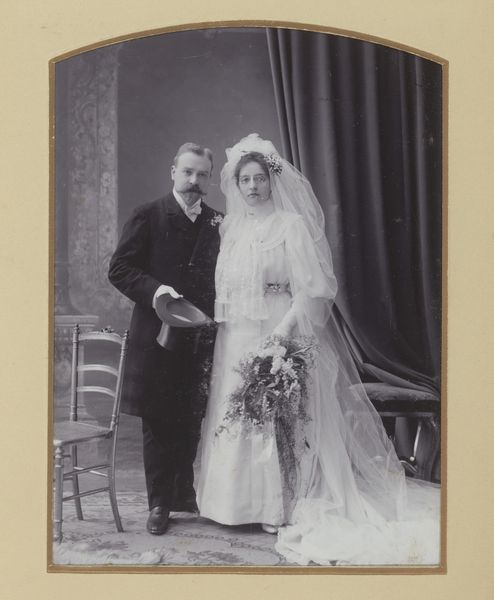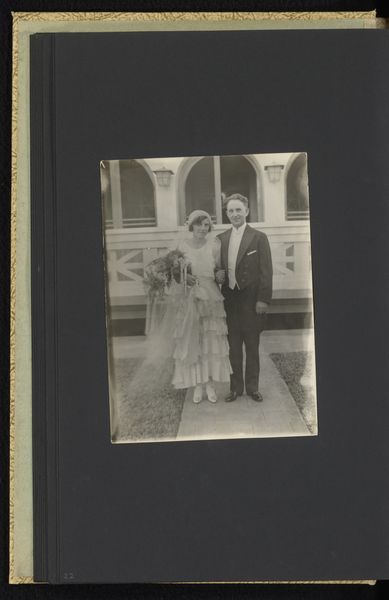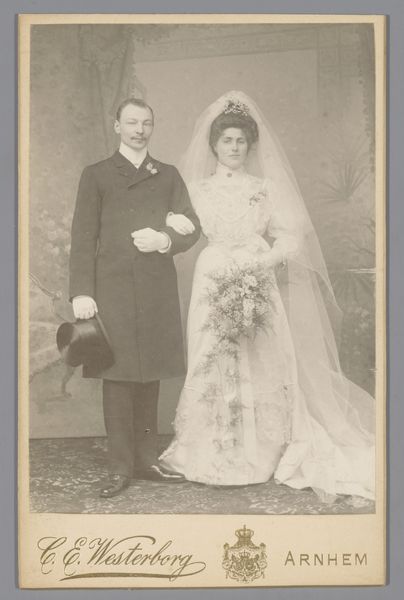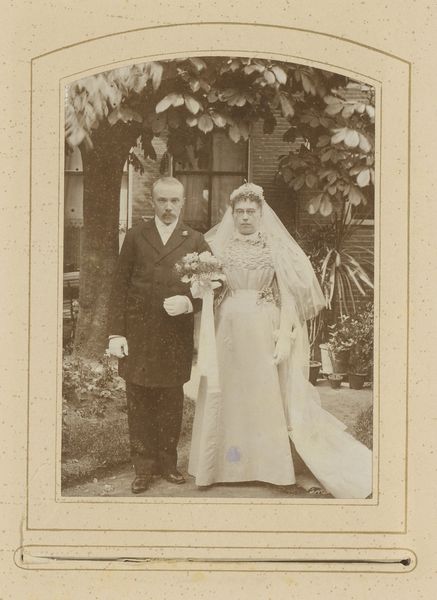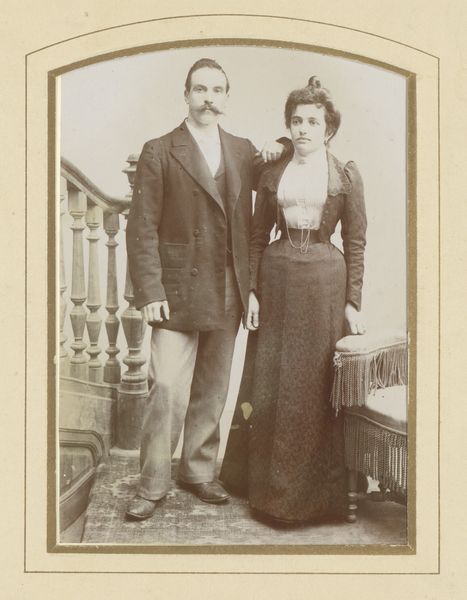
Portret van een bruidspaar, aangeduid als het echtpaar Henri Epaulard 1895 - 1920
0:00
0:00
photography
#
portrait
#
wedding photography
#
photography
#
historical photography
#
group-portraits
#
genre-painting
Dimensions: height 137 mm, width 97 mm
Copyright: Rijks Museum: Open Domain
Curator: What a strikingly composed photograph! There's a beautiful symmetry in its stillness, almost dreamlike. Editor: Indeed. This image is identified as “Portret van een bruidspaar, aangeduid als het echtpaar Henri Epaulard” — which translates to “Portrait of a bridal couple, identified as the Henri Epaulard couple." It’s estimated to be from between 1895 and 1920 and credited to Aimable Vercher. Curator: The formal wear is the key compositional element, directing the viewers' eyes to the textures. Her pristine gown is perfectly juxtaposed with his darker attire. And it’s not just contrast of shades, but the difference in textures—delicate lace versus the stark, solid lapels of the groom’s jacket. Editor: What interests me, beyond the aesthetics, is the formalization of such photography. It’s staged in a way that denotes aspiration. See how the background seems painted, adding a fabricated romantic quality. Curator: I’d agree. The artificial backdrop adds a sense of staged theatre, yet there’s a strange realism in their reserved demeanors. There’s not the candid joy we often see today; rather a constructed representation of societal roles. Editor: Perhaps a sign of the times? Wedding photography was, and in some circles remains, a status symbol, right? Curator: Certainly. It's about placing oneself, staking a position in the community, but then we can consider what values such performances uphold. Who had access? Who was excluded? Editor: Considering the formal balance of the image, and also the history of the image itself, one could argue that it still evokes the same ideas of aspiration, hope, and beginning today, it just makes the image and those aspirations eternal. Curator: Right, on viewing it, you become acutely aware that such imagery plays a complex role. What is portrayed, what is omitted, the narrative framed versus real experiences of those pictured. Editor: Absolutely. In conclusion, looking closely into this portrait gives us an insightful glance into the way identity was consciously shaped and immortalized in a photograph.
Comments
No comments
Be the first to comment and join the conversation on the ultimate creative platform.
